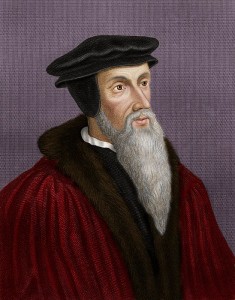In a nation that appears to be doing everything possible to expunge the remnants of its Christian foundation and heritage, it is no wonder that John Calvin has been forgotten as the virtual founder of our nation. John Adams, America’s second President; Leopold von Ranke, a nineteenth century leading German historian; and George Bancroft, a Harvard educated historian known as the “father of American history”, all testified to the significant influence Calvin had upon the foundation of America.
Unlike Locke or Montesquieu, however, Calvin did not write a political treatise on how to organize civil government. Instead, he wrote Biblical expositions that completely changed how people in western culture thought about their relation to God and, subsequently, how they thought about their relation to their civil government.
